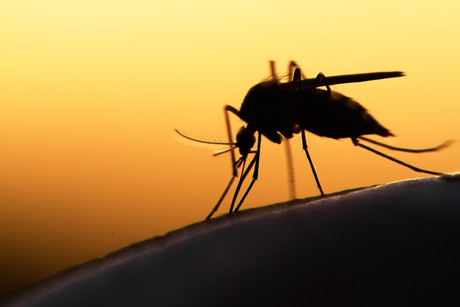Gene drive causes infertility in malaria-carrying mosquitoes

UK researchers have successfully developed a gene drive that can cause the complete collapse of caged mosquito populations in only 7–11 generations — marking the first time experiments have been able to completely block the reproductive capacity of a complex organism in the laboratory using a designer molecular approach.
Gene drives are built to spread specific genes throughout a population within a few generations by biasing inheritance of the genes in offspring. In mosquitoes, CRISPR-based gene drives can transmit specific genes to 99% of offspring, compared to the 50% transmission rate expected for regular genes.
Professor Andrea Crisanti and colleagues from Imperial College London developed a CRISPR-based gene drive to selectively target the mosquito species Anopheles gambiae, which is responsible for malaria transmission in sub-Saharan Africa. The hope is that mosquitoes carrying the gene drive would be released in the future, spreading female infertility within local malaria-carrying mosquito populations and causing them to collapse.
The team targeted a gene in An. gambiae called doublesex, which determines whether an individual mosquito develops as a male or as a female. They engineered a gene drive solution designed to selectively alter a region of the doublesex gene that is responsible for female development.
Writing in the journal Nature Biotechnology, the researchers revealed that males who carried this modified gene showed no changes, and neither did females with only one copy of the modified gene. However, females with two copies of the modified gene showed both male and female characteristics, failed to bite and did not lay eggs.
The team’s experiments also showed that the gene drive transmitted the genetic modification nearly 100% of the time. After eight generations, no females were produced and the populations collapsed because of lack of offspring.
Previous attempts to develop gene drive for population suppression have encountered resistance, where targeted genes developed mutations that allowed the gene to carry out its function and were resistant to the drive. These changes would then be passed down to the offspring, halting the gene drive in its tracks.
One of the reasons doublesex was picked for the gene drive target was that it was thought not to tolerate any mutations, overcoming this potential source of resistance. Indeed, in the study no functional mutated copy of the doublesex gene arose and spread in the population. And given the doublesex gene targeted in the study is similar across the insect world, this suggests the technology could be used in the future to specifically target other disease-carrying insects.
But while this is the first time resistance has been overcome, the team say additional experiments are needed to investigate the efficacy and the stability of the gene drive under confined laboratory settings that mimic tropical environments. This involves testing the technology on larger populations of mosquitoes confined in more realistic settings, where competition for food and other ecological factors may change the fate of the gene drive.
“This breakthrough shows that gene drive can work, providing hope in the fight against a disease that has plagued mankind for centuries,” said Prof Crisanti. “There is still more work to be done, both in terms of testing the technology in larger lab-based studies and working with affected countries to assess the feasibility of such an intervention.
“It will still be at least 5–10 years before we consider testing any mosquitoes with gene drive in the wild, but now we have some encouraging proof that we’re on the right path. Gene drive solutions have the potential one day to expedite malaria eradication by overcoming the barriers of logistics in resource-poor countries.”
A scientist, a cooler and a long-haul flight in the fight against MND
Early in January 2026, neuroscientist Dr Rachael Dunlop boarded a flight from Sydney to the US...
Mini lung organoids could help test new treatments
Scientists have developed a simple method for automated the manufacturing of lung organoids...
Clogged 'drains' in the brain an early sign of Alzheimer’s
'Drains' in the brain, responsible for clearing toxic waste in the organ, tend to get...



